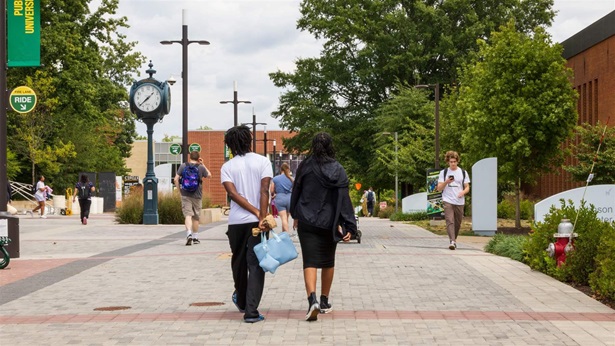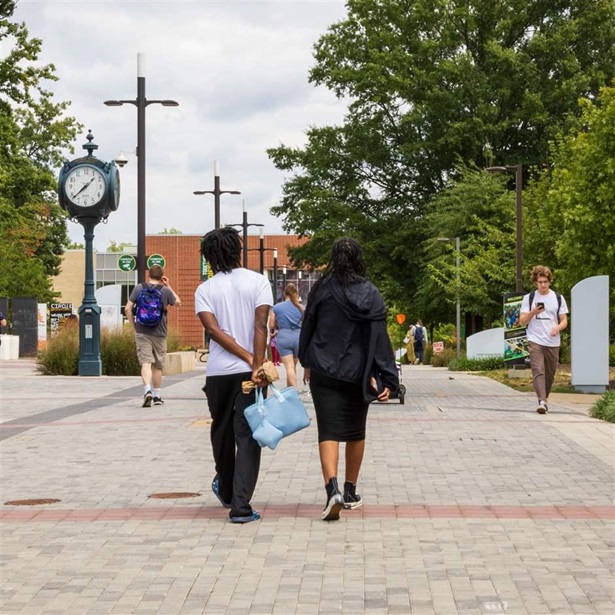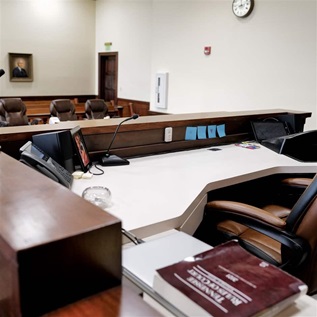Universities Explore Ways to Better Reward Faculty for Research That Enhances Society
New white paper details momentum to recognize academic efforts that could transform research landscape

A diverse group of universities has expanded faculty reward systems to recognize a wider range of scholarly contributions—particularly research that directly benefits society at large—in promotion and tenure decisions, according to a new white paper.
Research approaches that engage deeply with policy actors and community partners show promise for increasing research’s influence in societal problem-solving and its contributions to improved outcomes across a range of issues. Unfortunately, these valuable approaches are often underrecognized in evaluation systems that prioritize metrics such as publication counts, citation counts, and the “impact factor” of the journals where work is published. Despite the barriers, a diverse and rising generation of scholars is increasingly motivated to pursue public-impact research, and universities increasingly recognize an opportunity to expand their reward structures.
The white paper’s authors, Emily Ozer, Jennifer Renick, Bruce Jentleson, and Bemmy Maharramli, argue that such efforts could help increase the impact of research investments on issues of global and local significance. They outline strategies that—by rewarding publicly facing work—might allow universities to retain talented scholars while deepening public trust. The paper offers a set of promising approaches and recommendations for universities and funders that may help the research enterprise contribute more effectively to progress on issues such as peace, sustainability, and public health.
Report details momentum, challenges, and opportunities
Across the universities and higher education organizations analyzed in the white paper, three key takeaways and opportunities for higher education leaders and research funders emerged:
- Universities can employ a range of promising innovations for recognizing and supporting societally impactful research. The authors focus on promotion and tenure systems, offering examples of both reforms to university-wide guidelines and efforts to shape how campus departments and committees address individual faculty cases. But they also explore additional strategies that can help universities build capacity for publicly facing research, including graduate student and faculty training in promising approaches for achieving research impact, seed grants or fellowships to support research partnerships, and strengthened administrative infrastructure for research impact and community engagement. By exploring several approaches, the paper recognizes that university contexts vary tremendously and offers multiple entry points by which universities can expand opportunities for research to lead to public impact.
- Cross-campus collaboration and learning is essential to help universities assess progress, share promising practices, and coordinate institutional change projects. In addition to university case examples, the authors profile higher education organizations that are working to celebrate excellence in publicly facing research and to provide tools and supports for leaders advancing important change in research cultures. To build momentum across campuses, and to support and retain the many early-career researchers who are drawn to publicly engaged careers, the authors recommend strengthening and expanding networks of university leaders, faculty, and staff committed to institutional reforms. Specific opportunities include communities of practice among like-minded administrators or faculty across different campuses and disciplines, and coalitions of senior university officials committed to advancing change.
- Funders can accelerate systemic change by investing in campus reform efforts and catalytic initiatives, strengthening networks and coalitions, and using their voices and funding strategies to influence university priorities. The white paper recognizes the impact of existing investments in broadening research incentives and transforming research cultures that funders have already established. But barriers to maximizing the societal impact of research are not confined to one issue area or discipline. By working together and with partners in a diversity of universities, funders’ coordinated investments can support the structures, cultures, and conditions that enable a more impactful, engaged, and equitable research ecosystem.
The white paper was published by The Pew Charitable Trusts and prepared for the Transforming Evidence Funders Network (TEFN), with support from the Robert Wood Johnson Foundation, the William T. Grant Foundation, the Doris Duke Foundation, Carnegie Corporation of New York, and U.K. Research and Innovation.
What happens next?
Broadening reward systems to more comprehensively recognize research that directly benefits society can help universities recruit and retain talented faculty and students while creating opportunities for policy and practice impacts that reverberate well beyond the campus walls. Through TEFN and the Transforming Evidence Network, Pew is collaborating with thought leaders in the funding community and across higher education to analyze and act on the white paper’s findings. By strengthening cross-disciplinary and cross-campus connections, the networks aim to spark reforms to research systems that lead to improved policy decisions, increased public engagement, and more equitable outcomes for researchers, students, and the communities they serve.
Angela Bednarek is the director of and Benjamin Olneck-Brown is an officer with The Pew Charitable Trusts’ evidence project.














